The recent 12-day military confrontation between Iran and Israel, which included joint aerial operations involving the United States and targeted attacks on Iranian nuclear facilities, has significantly influenced the geopolitical landscape of the Middle East. Beyond military implications, the conflict has altered the trajectory of nuclear diplomacy and regional alignments. In this shifting environment, Saudi Arabia has adopted a nuanced and multifaceted approach. Riyadh seeks to balance its interests: stabilizing regional tensions, preserving strategic partnerships and advancing its position as a mediator in the evolving Middle East order.
Saudi Arabia’s Minister of Defense Khalid bin Salman’s visit to the United States, his direct phone conversation with Chief of Staff of Iran’s Armed Forces Major General Abdolrahim Mousavi and the diplomatic visit of Saudi Foreign Minister Faisal bin Farhan to Moscow all reflect Saudi Arabia’s growing interest in regional conflict de-escalation and strategic diversification. These moves signal Riyadh’s willingness to engage with multiple actors to avoid further confrontation and to support a more stable regional balance.
Riyadh’s active diplomacy
The recent trip by Prince Khalid bin Salman to Washington, where he met with US President Donald Trump, marked one of Riyadh’s most significant diplomatic moves following the Iran-Israel hostilities. Reports by Axios and Fox News indicate that the meeting focused on the regional security environment, the end of the Gaza hostilities and the issue of prisoner releases. In a public statement, Khalid bin Salman emphasized the importance of preserving regional stability and security. The timing of this meeting — preceding Israeli Prime Minister Benjamin Netanyahu’s own visit to the White House — underscored Saudi Arabia’s ambition to position itself as a constructive diplomatic actor.
From Tehran’s point of view, the meeting could be interpreted as a signal that Saudi Arabia seeks to avoid further escalation. The improvement in Iran–Saudi relations, especially following the China-brokered agreement of March 2023, has created space for cautious diplomatic engagement. Riyadh increasingly recognizes that prolonged tensions with Iran could jeopardize not only regional stability but also its own ambitious economic transformation programs, such as Vision 2030 (the set of goals released by the administration of President (then Prime Minister) Recep Tayyip Erdoğan in 2010 and 2011). Trump’s remark that Iran may be open to negotiation — despite conflicting with the reality of the recent strikes — may partly reflect diplomatic pressure from Saudi Arabia to encourage dialogue over confrontation.
One of the most notable developments after the conflict was a direct phone conversation between Prince Khalid and Major General Mousavi. As reported by Asharq Al-Awsat, the conversation addressed bilateral military issues and regional security concerns. This marked the first formal contact at this level between the two militaries in recent years and demonstrated Riyadh’s evolving willingness to open channels of communication with Tehran, even in the aftermath of heightened tensions.
While the missile strike by Iran on the Al Udeid Air Base in Qatar triggered condemnation by Gulf Arab states, there was notably no significant diplomatic fallout. Instead, diplomatic channels remained open. This suggests a regional preference — particularly in capitals like Riyadh, Doha and Abu Dhabi — for crisis management rather than a return to prior confrontational policies. For Iran, this outreach signifies a shift in how Saudi Arabia is approaching regional diplomacy: one that includes Iran as a necessary interlocutor, not an adversary to be isolated.
Leveraging Moscow’s potential
In parallel with Khalid bin Salman’s visit to the US, Saudi Foreign Minister Faisal bin Farhan traveled to Moscow to hold talks with Russian officials, including Foreign Minister Sergey Lavrov. This move illustrates Riyadh’s effort to diversify its strategic partnerships and hedge against overdependence on the United States. According to Russian sources, the talks focused on enhancing bilateral ties and addressing Middle Eastern developments. A written message from President Vladimir Putin to the Saudi king earlier this year also reaffirmed the importance of Saudi-Russian cooperation.
The visit took place amid growing concerns in Riyadh over Israel’s unilateral military actions and perceived lack of restraint, which many Gulf states believe destabilize the region. Russia’s close relationship with Iran, particularly in the military and political domains, allows it to serve as a valuable intermediary. For Saudi Arabia, engaging Moscow is both a balancing act and a way to reinforce its own agency in shaping the post-conflict environment. From Tehran’s perspective, Riyadh’s outreach to Russia suggests a broader willingness to distance itself from US-led pressure strategies and consider multipolar solutions to regional challenges.
Regional anxiety over Israel’s conduct
To understand the current recalibration in Gulf foreign policy, one must consider shifting attitudes toward Israel’s role in the region. Following the recent conflict, many Gulf Arab countries, including Saudi Arabia, Qatar and the UAE, have expressed unease over Israel’s aggressive posture in Gaza, Lebanon, Syria and now Iran. There is a growing perception among Gulf states that Israel’s increasingly aggressive posture makes it an unpredictable actor capable of dragging the region into broader conflicts.
This growing discomfort stems in part from historical experiences, such as the US withdrawal from the Joint Comprehensive Plan of Action (JCPOA) and its departure from Afghanistan, which have shaken confidence in Washington’s commitment to regional security. As a result, Gulf countries are exploring ways to reduce their strategic dependence on the US and seek a more balanced regional framework — one that includes Iran rather than excluding it.
These diplomatic developments present an opening for Iran to further stabilize its regional position. With its strategic geography, educated population and resilient infrastructure, Iran remains a key player in any future security architecture. The March 2023 Iran-Saudi agreement, brokered by China, has laid the groundwork for increased bilateral engagement, including military dialogue. The recent phone call between Khalid bin Salman and General Mousavi illustrates this potential.
From Riyadh’s perspective, engaging Iran supports its broader goals of economic diversification and regional stability. Major development projects such as Vision 2030 depend on a stable Persian Gulf, unthreatened by escalation in areas like the Strait of Hormuz. For this reason, Saudi Arabia’s diplomacy increasingly emphasizes risk reduction, dialogue and pragmatic regionalism.
Iran, in turn, has an opportunity to present itself not only as a resilient actor but also as a cooperative one. The ability to rebuild damaged infrastructure and maintain deterrence, coupled with strategic outreach to neighbors, could reframe Iran’s image in the Gulf. Statements from Iranian officials and assessments from international bodies like the IAEA suggest that Iran’s nuclear capabilities remain intact and can be recalibrated within non-militarized frameworks, though the Trump administration disputes that.
Toward a new Gulf equilibrium
Saudi Arabia’s active regional diplomacy and Iran’s strategic patience signal the potential for a new phase in Gulf relations. While mutual suspicions remain, both sides recognize the unsustainable nature of zero-sum competition. The inclusion of Russia and potentially China as diplomatic interlocutors further supports the move toward multipolar regional governance.
What emerges is the possibility of a Gulf security framework grounded in mutual interest, economic integration and strategic restraint. In this evolving context, Iran and Saudi Arabia could serve as pillars of a more balanced Middle East order — one defined not by rivalry, but by cooperative crisis management and long-term stability.
[Casey Herrmann edited this piece]
The views expressed in this article are the author’s own and do not necessarily reflect Fair Observer’s editorial policy.
Support Fair Observer
We rely on your support for our independence, diversity and quality.
For more than 10 years, Fair Observer has been free, fair and independent. No billionaire owns us, no advertisers control us. We are a reader-supported nonprofit. Unlike many other publications, we keep our content free for readers regardless of where they live or whether they can afford to pay. We have no paywalls and no ads.
In the post-truth era of fake news, echo chambers and filter bubbles, we publish a plurality of perspectives from around the world. Anyone can publish with us, but everyone goes through a rigorous editorial process. So, you get fact-checked, well-reasoned content instead of noise.
We publish 3,000+ voices from 90+ countries. We also conduct education and training programs
on subjects ranging from digital media and journalism to writing and critical thinking. This
doesn’t come cheap. Servers, editors, trainers and web developers cost
money.
Please consider supporting us on a regular basis as a recurring donor or a
sustaining member.
Will you support FO’s journalism?
We rely on your support for our independence, diversity and quality.



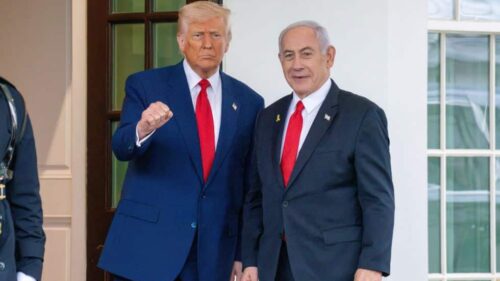
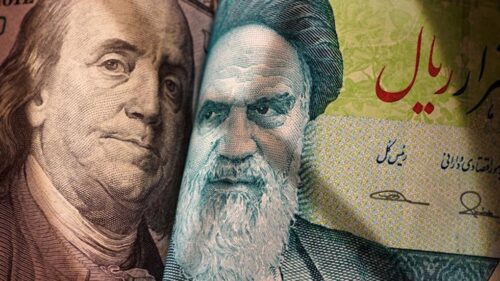
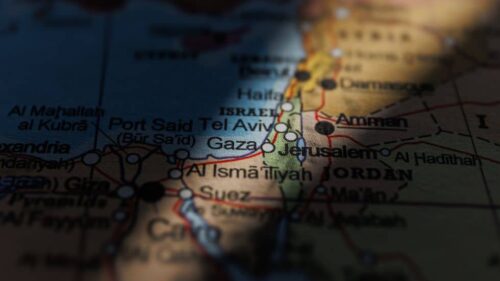
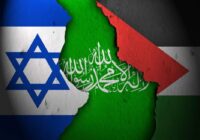
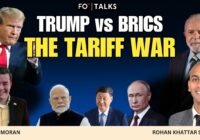
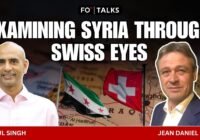


Comment